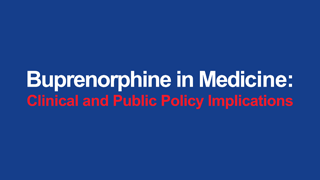State survey of medical boards regarding abrupt loss of a prescriber of controlled substances
DOI:
https://doi.org/10.5055/jom.2017.0374Keywords:
controlled substances, opioid prescribing, emergency managementAbstract
Objectives: The purpose of the study was to evaluate states’ experiences with abrupt changes in controlled substances (CS) prescribing, to determine whether states have action plans in place to manage such situations, and describe the components of any such plans.
Methods: A survey of executive directors of 51 medical boards was conducted to evaluate states’ experiences with abrupt changes in CS prescribing, the extent of consumer complaints attributed to these events, and the types of plans in place to manage these situations.
Results: Forty-six executive directors of medical boards responded. Twenty boards (43.5 percent) confirmed that their state had experienced abrupt loss of CS providers and 11 (55 percent) of these executive directors indicated that the loss resulted in increased consumer complaints. The majority of executive directors (86 percent) had no action plan. Six executive directors reported some type of action plan or process consisting of regulatory action, patient-provider connection, professional education, patient education, or public notice.
Conclusions: Most states do not have operational plans in place. However, a few have key strategies that may be useful in addressing potential problems following abrupt loss of a CS prescriber. State medical boards can play a significant role in the development of comprehensive preparedness plans to mitigate damage from the loss of CS prescribers in the community.
References
Fibbi M, Silva K, Johnson K, et al.: Denial of prescription opioids among young adults with histories of opioid misuse. Pain Med. 2012; 13(8): 1040-1048.
Richard J, Reidenberg MM: The risk of disciplinary action by state medical boards against physicians prescribing opioids. J Pain Symptom Manage. 2005; 29(2): 206-212.
Jung B, Reidenberg MM: The risk of action by the Drug Enforcement Administration against physicians prescribing opioids for pain. Pain Med. 2006; 7(4): 353-357.
Kennedy-Hendricks A, Richey M, McGinty EE, et al.: Opioid overdose deaths and Florida's crackdown on pill mills. Am J Public Health. 2016; 106(2): 291-297.
Twillman RK: Pill mills are not pain clinics: The challenge of addressing one without harming the other. J Med Reg. 2012; 98(2): 7-11.
Virginia Board of Medicine: Laws and regulations. Available at https://www.dhp.virginia.gov/medicine/medicine_laws_regs.htm. Accessed December 18, 2016.
Project ECHO: A revolution in medical education and care delivery. University of New Mexico. Available at http://echo.unm.edu/. Accessed November 17, 2016.
State of Rhode Island Department of Health: Closing practices. Available at www.health.ri.gov/healthcare/about/closingpractices/. Accessed December 18, 2016.
State Emergency Operations Center: State of Rhode Island Emergency Management Agency. Available at http://www.riema.ri.gov/response/operations/eoc/index.php. Accessed December 18, 2016.
New Mexico Medical Board: Continuing education courses for pain management. Available at http://www.nmmb.state.nm.us/pain_management_cme.html. Accessed December 18, 2016.
Opiate Action Team (GOCAT): Ohio Mental Health and Addiction Services. Available at http://mha.ohio.gov/Default.aspx?tabid=779. Accessed December 18, 2016.
DocFinder: Main Board of Licensure in Medicine. Available at http://docfinder.docboard.org/me/df/mesearch.htm. Accessed December 18, 2016.
Sklar DP, Richards M, Shah M, et al.: Responding to disasters: Academic medical centers’ responsibilities and opportunities. Acad Med. 2007; 82: 797-800.
Troy DA, Carson A, Vanderbeek J, et al.: Enhancing community–based disaster preparedness with information technology. Disasters. 2008; 32: 149-165.
CDC: Public health preparedness capabilities: National standards for state and local planning. Updated 17 June 2016. Available at https://www.cdc.gov/phpr/capabilities/. Accessed November 17, 2016.
Deluanay S, Kahn P, Tatay M, et al.: Knowledge sharing during public health emergencies: From global call to effective implementation. Bull World Health Organ. 2016; 94(4): 236-236A.
Dolesh RJ: Disasters! Are you prepared? Parks Recreation. 2016; 51(11): 48-51.
Published
How to Cite
Issue
Section
License
Copyright 2005-2025, Weston Medical Publishing, LLC and Journal of Opioid Management. All Rights Reserved.










